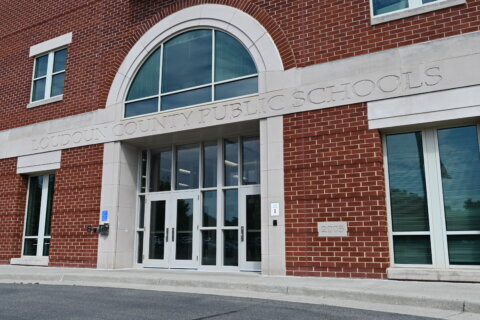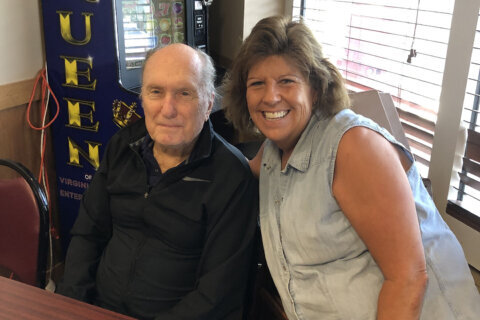The Loudoun County School Board has heard from local researchers, who believe 10 current school names should be looked at more closely for Confederate or segregationist associations.
The board heard from Stephen Hammond and Larry Branch from the Black History Committee of the Friends of Thomas Balch Library Tuesday night. The organization was founded in 2000 “to preserve, collect, promote and share the history of African Americans who contributed to the emergence and development of Loudoun County, Virginia.”
The county has been under contract with History Matters, LLC to research future school names in an effort to combat systemic racism, but has reviewed previously-named schools that have not undergone historical evaluation. The Black History Committee was asked to review History Matters findings and offer recommendations.
During Tuesday’s presentation, school board members and researchers acknowledged that discussions of name changes can be painful, and are often not cut and dried.
Larry Branch, with the BHC said some of the schools are named for people who meet History Matters criteria for review, who “lived in the 17th, 18th, and 19th centuries, during the period of time when slavery was a fundamental part of the economic, cultural, and political systems in Virginia and Northern Virginia.”
Branch asked rhetorically, “Did they double down on what they were born in, or did they see the need for the change? “We are [armchair quarterbacking] history over time, and all we can do is look at where an individual started, and where an individual ended up.”
None of Loudoun County’s schools are named for Confederate leaders, but using the criteria given to the BHC, the group determined there are 10 school names that warrant more investigation. Four of the schools are named for people; six are named for locations.
The schools identified for additional consideration are: Ball’s Bluff Elementary, Belmont Ridge Middle, Belmont Station Elementary, Emerick Elementary, Frances Hazel Reid Elementary, Hutchison Farm Elementary, Mercer Middle, Moorefield Station Elementary, Seldens Landing Elementary and Sully Elementary.
The Black History Committee broke the 10 names into tiers, to offer groupings that might be more manageable for the school board to consider.
While schools in Groups B, C, and D required more study, the committee declared the two schools in Group A should be renamed: Frances Hazel Reid Elementary and Mercer Middle School.
“The people/place for whom they are named have a direct association with [the] enslavement of people, the United Daughters of the Confederacy, the Lost Cause and the American Colonization Society. In our opinion, based on the criteria for this review, the reasons for changing the names of these schools are obvious,” wrote Branch and Hammond, in their April 28 letter to the school system.
However, School Board Chairman Jeff Morse suggested the panel wouldn’t rubber-stamp the committee’s findings.
Morse said Reid, who, in her 20s, was part of the Daughters of the American Confederacy, but spent 70 years as a Loudoun-based journalist with the Loudoun Times-Mirror: “I hope we can look at the total contribution of the individuals, and see how that weighs out.”
If the school board were considering naming schools for Thomas Jefferson or George Washington: “Would it be the weight of their entire career, or would it be the specific fact that they were slave owners — how would that scale be weighed?”
Board member Atoosa Reaser added a caveat to Morse’s suggestion that a person’s entire life be considered. “The demographics of our community that were most affected by the actions people took in history should have the loudest voice in influencing our decision with how to balance the factors of what a person did, throughout their life.”
“This was our attempt to provide observations — not recommendations — about how these things have affected certain people. I think when these names were originally selected, they didn’t really have all the voices at the table to provide an opportunity to say ‘we’d like to see this,’ or perhaps, ‘we wouldn’t like to see this,'” Hammond agreed.
In addition to the immediate analysis, the school board is also working to study possible revisions to the school board policy on naming school facilities.
Hammond said it’s important for the school community, including students, teachers, and staff to be apprised of the historical research, and reasons for considering a name change before it’s done.
“To allow us to ask ourselves, and ask our community, should we rethink [why a school is named for a specific person] and if the answer is yes, within the community, then I think there’s a good reason to move forward,” he said.








